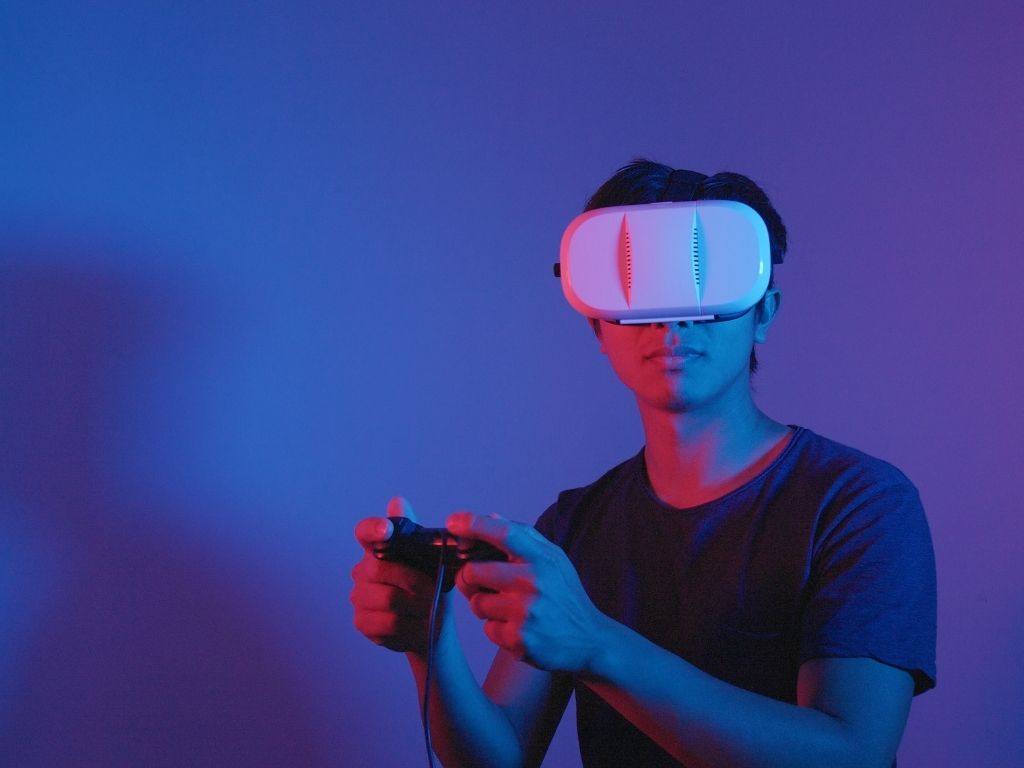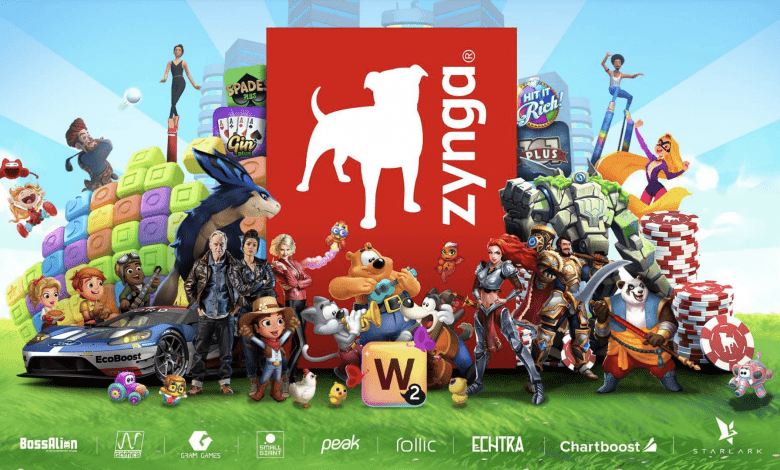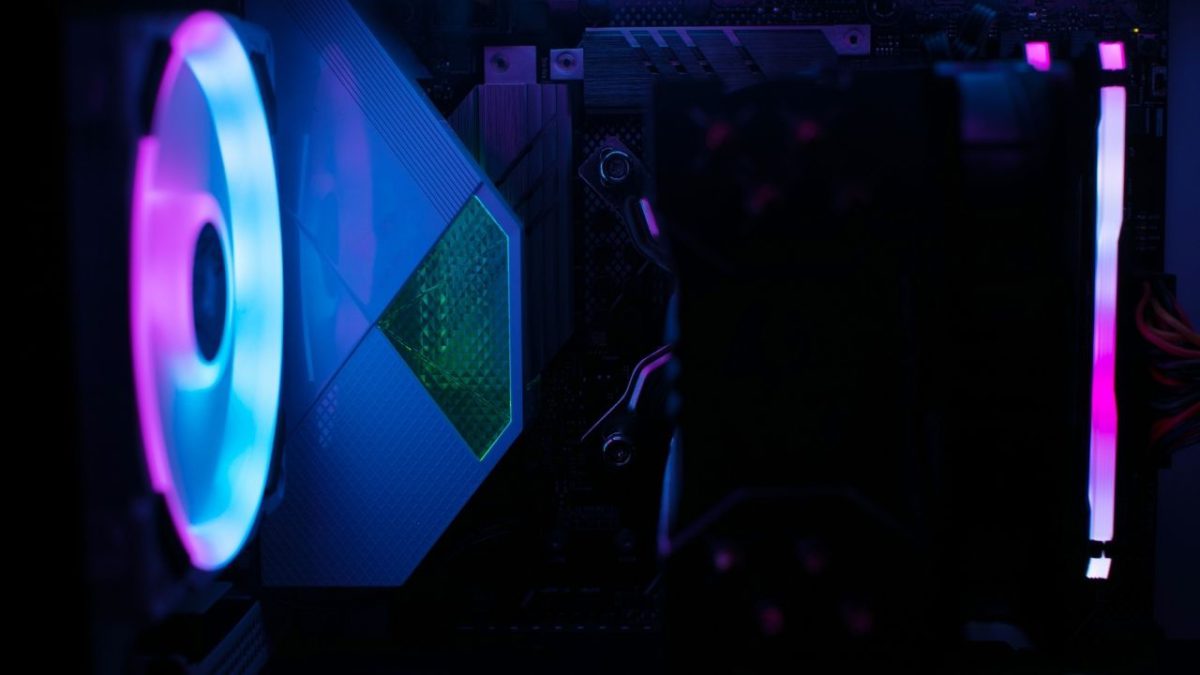Here’s Why Video Games Will Likely Be Web3 Largest Future Use.
One of the most commonly used terms on the internet today, Web3, is even more prevalent in the blockchain industry, where it seems like every new project and start-up is constructing something Web3-focused. Web3, despite its potential to become jargon, actually means something. With less censorship, centralization, third parties, sharing of ownership, transferability of assets, and influence from conventional financial institutions, it describes a better and more user-defined internet.
Before exploring Web3 and what it stands for, it is crucial to understand the development of the internet. Tim Berners-1989 Lee’s release of Web 1.0 marked its beginning. At this point, centralized infrastructure and static content dominated the internet. But in 2004, the introduction of IT firms and social media gave rise to Web 2.0 and the era of dynamic range. Users now contribute to the content that is published online. The infrastructure and management, however, are still centralized.
Because users now have a more significant impact online, they also need more ownership and control over it. Although tech corporations may assert that they give users more power, numerous examples have revealed that these businesses nevertheless hold a significant advantage in user interactions. Consumers themselves are the content of Web 2.0.
The first Live2D NFT allows you to navigate through both motion and facial capture and get your exclusive avatar for future use in web3 games, Metaverse meeting/party, livestream or vtuber (virtual YouTuber).#nft #Live2D #NFTCommunity #SushiCats pic.twitter.com/PDOEjBLU2x
— Sushi Cats Fam (@thesushicatsnft) June 19, 2022
Web3 has always been a concept, but the required infrastructure to make it a reality has never existed. However, Web3 is now viable because of the development of blockchain technology, cryptocurrencies, and non-fungible tokens. These new technologies might end the decades-long hegemony of a small number of centralized organizations that set the rules for everyone else to follow.
The reasons and methods for why and how Web3 adoption will gain traction are endless. Decentralized banking, metaverses, decentralized autonomous organizations (DAOs), privacy, digital asset ownership, the digital art ecosystem, origin traceability, “smart contract“-based markets, and other use cases are just a few of the many that Web3 can be put to use in. One of the critical use cases that are currently being investigated is gaming. Industry leaders are aware of the immense gaming potential of Web 3. Affinity and Inc. 500 Entrepreneurs were questioned. Xyz Brian D. Evans, a founder on this subject.
“As just one illustration, gamers like me will be ecstatic when we truly own all the in-game content. This will contribute to Web3 Gaming experiencing an enormous snowball effect. Since I’ve worked on significant traditional game marketing campaigns and spent seven years in the blockchain space, it’s evident that as soon as we get fantastic games with Web3 components, blockchain gaming will take off, said Evans.
Gaming is a crucial use for blockchain technology, and it’s a great illustration of how and why Web3 is so essential. And many are backing up their claims with deeds. A Hong Kong-based software and venture capital firm, Animoca Brands, is making significant bets on Web3 gaming, entertainment, and other areas, amounting to hundreds of millions of dollars. Yat Siu, Animoca Brands’ co-founder and executive chairman, told us that in-game objects, content, and currency ownership would be a logical next step for the three billion gamers worldwide who already have a positive relationship with and understand the value of virtual commodities.
According to Yat, blockchain games can close the ownership gap, giving players more authority than ever to own indeed— and profit from — their digital assets. This can only be done via decentralized methods, which is why the prospect of fusing blockchain technology with gaming is so intriguing. The game of life itself is one that many individuals find to be poorly conceived and tarnished by oppressive rules and situations. We can create a better game, a more egalitarian environment where everyone has the chance to play, learn, grow, work, own their digital products, and have a voice thanks to blockchains, Web3, and the Metaverse. Today’s play-and-earn and play-to-own models are merely the first iterations of a process that will one day enable us to plan and create a more equitable economy.
Also read: Part 2: Women In Web3 Leading The Tech Industry
Another business that is fully committed to Web3 Gaming is Alpha District. They are a gaming ecosystem bringing casual games to a Web3 platform as a high-fidelity gaming “thriller” (similar to Game of Thrones or Lost). They have already received backing from and are collaborating with companies like YGG SEA, Infinity Ventures Crypto, Fabian Lacey (Star Wars, Black Panther, Avengers), and PM Studios, one of the top narrative game writers in the world.
The majority of the gaming industry is made up of Gen Y millennials who were born at the end of the internet era and had a significant amount of money invested in MMORGs and console games, according to Stephen Liu, co-founder, and chief operating officer of Alpha District and a serial tech entrepreneur. I think that the Gen Zs who grew up with the iPad and the Gen Alphas who will grow up in the Metaverse will be the ones to kickstart Web3 gaming and the ownership of digital assets. It was planned out.
Blockchain gaming is already gaining popularity, and Web3 has the potential to redefine ownership in the gaming industry and possibly alter the goal of video games. Most gamers have traditionally played for fun, and developers create things for entertainment. One of the first Web3 game incarnations people could play and earn money focused on something else. Because of this, it is not unexpected that platforms for play-to-earn (P2E) games, like Axie Infinity, have experienced tremendous uptake.
Gamers may make, own, and exchange in-game assets thanks to Web3. Thomas Grnnevik, CEO of gaming platform Washer and a founding member of Affinity. Xyz claims that Web3 would allow people to freely trade with one another, precisely as we did before companies were established. In truth, revenue isn’t limited to tokens alone; it can also take the form of user-to-user trading, similar to how other collectibles are traded. This opens the door for a contemporary renaissance to see communities centered on human creativity, individual production, and personal ownership emerge.
The conventional gaming industry has not well received web3 advancements. This is primarily because people don’t understand how these developments affect video games. There are countless options, and many of these early, promising use cases can be developed further to benefit players extensively. While earning money through gaming was an early use case, it won’t be the driving force behind these ideas; rather, it will be the communities and cultures born from them.
Experimentation is the main focus at this time. Adoption must come along with improved technologies. The most popular Web3 YouTuber in North America and the founder of BitBoy Crypto, Ben Armstrong, claims that “Web3 is a revolution that will transform everything about what we know about the internet. However, a sizable gaming industry sector has voiced substantial opposition to play-to-earn models, NFT integration, and blockchain gaming. In all honesty, the gamers have a complaint. We are currently heading into the future… But the game is still in its early stages. We will finally win over the gaming community on the day blockchain gaming can match or even outperform the quality of next-gen console games.
Web3 gaming has a fantastic chance to expand the adoption of blockchain technology, with over 3.2 billion gamers worldwide. However, such adoption won’t occur until Web3 games begin showcasing their usefulness to traditional players. This value proposition is based on the fact that players own all in-game items, including characters, characters’ in-game weapons, tools, and spells, in-game land, in-game currency, and the freedom to conduct free trade with other players. Even more so, it’s the chance to influence essential game choices, which fosters a more robust culture and community for a particular game.
A critical factor in the adoption of Web3 in gaming is education. It will be crucial to inform players about all the advantages and cutting-edge features. Web 3.0 has to offer. As we transition, it’s okay for us to live in a “Web 2.5” world for the time being. As more gamers become aware of the significant advantages, more games will incorporate Web3 components. The old guard will attempt to maintain legacy systems for as long as possible because they currently control all the money and the decision-making. But before long, players will become savvier and demand more from game developers.
Stay informed with daily updates from Blockchain Magazine on Google News. Click here to follow us and mark as favorite: [Blockchain Magazine on Google News].
Get Blockchain Insights In Inbox
Stay ahead of the curve with expert analysis and market updates.
latest from tech
Disclaimer: Any post shared by a third-party agency are sponsored and Blockchain Magazine has no views on any such posts. The views and opinions expressed in this post are those of the clients and do not necessarily reflect the official policy or position of Blockchain Magazine. The information provided in this post is for informational purposes only and should not be considered as financial, investment, or professional advice. Blockchain Magazine does not endorse or promote any specific products, services, or companies mentioned in this posts. Readers are encouraged to conduct their own research and consult with a qualified professional before making any financial decisions. The featured image used is just a creative depiction of the title and it does not intend to hurt sentiments of any person or institution. If it hurts anyone sentiments, please do not hesitate to reach out to Blockchain Magazine.

 Bitcoin
Bitcoin  Ethereum
Ethereum  XRP
XRP  Tether
Tether  Solana
Solana  Dogecoin
Dogecoin  USDC
USDC  Cardano
Cardano  Lido Staked Ether
Lido Staked Ether  TRON
TRON  Chainlink
Chainlink  Avalanche
Avalanche  Wrapped stETH
Wrapped stETH  Stellar
Stellar  Wrapped Bitcoin
Wrapped Bitcoin  Sui
Sui  Hedera
Hedera  Toncoin
Toncoin  Shiba Inu
Shiba Inu  WETH
WETH  Polkadot
Polkadot  Parkcoin
Parkcoin  LEO Token
LEO Token  Litecoin
Litecoin  Bitcoin Cash
Bitcoin Cash  Bitget Token
Bitget Token  Uniswap
Uniswap  Hyperliquid
Hyperliquid  Official Trump
Official Trump  Wrapped eETH
Wrapped eETH  Pepe
Pepe  USDS
USDS  NEAR Protocol
NEAR Protocol  Ethena USDe
Ethena USDe  Aave
Aave  Aptos
Aptos  Internet Computer
Internet Computer  Ondo
Ondo  Monero
Monero  Ethereum Classic
Ethereum Classic  POL (ex-MATIC)
POL (ex-MATIC)  OKB
OKB  Cronos
Cronos  Dai
Dai  Mantle
Mantle  Algorand
Algorand  Render
Render  MANTRA
MANTRA 



